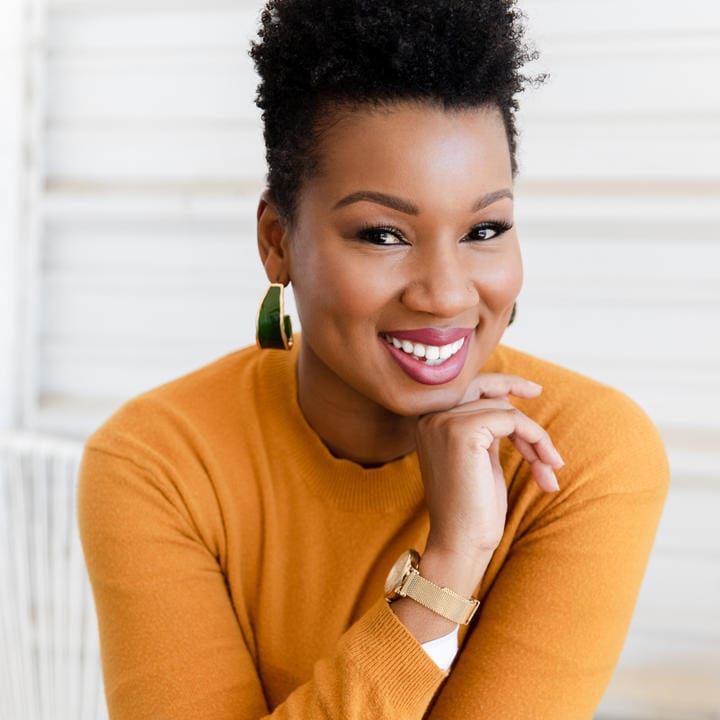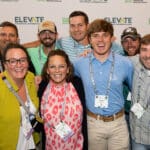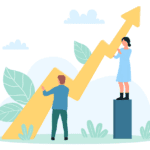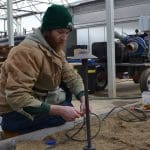
Do you find it challenging to communicate your strengths and accomplishments? If so, you don’t want to miss the NALP Women’s Forum keynote on Nov. 3 at 10 a.m., the day before ELEVATE.
This daylong pre-ELEVATE event is designed for women in the green industry and provides an opportunity grow your network and advance your career in a supportive and inclusive environment. All genders are welcome to attend this event.
Part of this event includes the keynote ‘Mastering the Shameless Plug’ presented by Sherhara Downing, co-founder and Chief Visionary Officer of SpeakHaus. Downing says she’s excited about the space for women to come together. She says this will be a time to excavate experiences from one another.

If you have difficulty talking about yourself, Downing says you need to attend this keynote.
“Even if you feel as if you’ve made it to a great point, or a great space and leadership, there’s always articulating the nuances of how you’ve evolved, and really thinking about how you desire to evolve as a leader and who you’re becoming,” Downing says.
She says too often, women assume their work will speak for itself, but you have to speak up for yourself. Downing adds that sharing your accomplishments shouldn’t be shameful; you’re celebrating them.
“It comes from a very common experience whether you are in the landscaping business or not, it is difficult for women to talk about themselves,” Downing says. “It’s just hard, but in order for anyone to grow, in order for anyone to leverage resources, in order to lead teams, in order to connect colleagues, you’ve got to feel comfortable talking about yourself so that people better understand who you are and what you’re about.”
Downing says if you have the desire to reach the next level or new opportunities, it starts with how you communicate. She points out that typically the people who are the loudest get the opportunities first. She says there is nothing wrong with speaking up for who you are and what you’ve accomplished.
In her keynote, Downing will explain how to reframe and share accomplishments without coming off braggadocious. She will also widen perspectives on what are valuable stories about what you’ve done and contributed.
“When you put it in a story, it makes a big difference,” she says. “When you take your achievements, your accolades and your wins, and you put it in a story, I’m just listening to the story. It’s always more entertaining. We listen to celebrities all the time tell their celebrity stories about when they were hanging out with other celebrities. We love it, but we don’t think that they’re bragging. It’s their life.”
Downing says when you boil it down to what’s authentic, it’s all about the stories you tell about yourself. She says it’s important to focus on the conversational stories that allow you to connect with others.
“We oftentimes think that the people who are charismatic, that have an amazing presence, that step into a room, that have command, that it’s something that you’re just born with,” Downing says. “It’s not. It’s something that is intentionally cultivated, and in this case, we can become very strategic about the stories that we tell about ourselves that help us become the leaders that we desire to be.”
Downing will also cover The Proud Talk storytelling framework during her keynote.
‘This framework is a prompt,” Downing says. “It’s going to be easy to use. You’re going to be able to use it on your next Teams meeting or your next Zoom meeting. You’re going to be able to use it that day in the conference.”
Downing notes it’s important for leaders to take ownership of their achievements and contributions because otherwise, they tend to forget what they’re doing and start going through the motions. She says not stopping to appreciate what they’ve accomplished can make work very unfulfilling.
For those who believe leaders can’t take credit for a team project, Downing also has an answer.
“An easy way to balance talking about your own achievements, accolades and wins, your very own contributions, but still attributing the work and the collaboration that exists and getting things done is edification,” Downing says. “All you have to do is edify. All you have to do is give a shout-out. You might say, ‘I led the team to dot dot dot, but I want to give a special shout-out to Jill because had she not shown up with dot dot dot, it couldn’t have been done.”
Downing also says if people don’t know about your work with your employee resource group or volunteering, how will others know to tap you on the shoulder for your assistance.
She encourages attendees to come with an attitude of ‘What am I going to learn?’ versus ‘Is there anything I’m going to learn?’
“There’s always something for you to learn, especially if you go into whatever workshop whether it’s mine or someone else’s, and you go into it and say, ‘What is it that I can learn?’” Downing says. “I think that if you’re going into it asking that question, no matter what conference, you’re bound to walk away with something because now you’re starting to frame yourself to receive learning.”
You can learn more about how to promote yourself and communicate your story at the NALP Women’s Forum on Sunday, Nov. 3 at 10 a.m. Note: There is a separate fee for the NALP Women’s Forum, and registration for ELEVATE is required.




